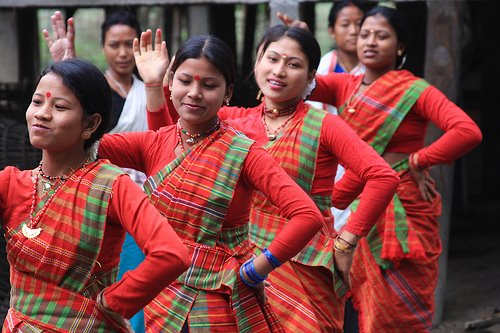Mising Tribe Celebrates Ali Ai Ligang Festival
The Mising tribe, Assam’s largest tribal community, recently celebrated the Ali Ai Ligang festival. This festival marks the beginning of the sowing season and is deeply rooted in the agricultural traditions of the Mising people. Celebrated on the first Wednesday of the month of Fagun, the festival showcases the tribe’s rich cultural heritage and agricultural practices.
Significance of Ali Ai Ligang
Ali Ai Ligang is a traditional festival that signifies the start of cultivation. The name translates to “sowing of seeds and roots.” It reflects the Mising people’s connection to agriculture and their reliance on the land. The festival is a time for community gathering and celebration.
Rituals and Traditions
The festivities begin with the hoisting of the festival flag, known as Laitom Tomchar. This is followed by various rituals that pay homage to their agricultural deities, particularly Donyi Polo, the Sun and Moon gods. Offerings of traditional foods, including Apong (rice beer), dry meat, and fish, are made to seek blessings for a bountiful harvest.
Cultural Displays
During the festival, community members don traditional attire, enhancing the cultural vibrancy of the event. One of the marks is the Gumrag dance, performed in rhythmic harmony by men and women. This dance symbolizes joy and prosperity for the upcoming agricultural season. Traditional competitions and feasts also form an integral part of the celebrations.
Historical Context
The Mising tribe has a long history of celebrating Ali Ai Ligang. While it was traditionally observed in villages, urban celebrations have emerged in places like Jorhat over the past 40 years. Despite the changes in venue, the core rituals and customs remain intact, preserving the festival’s authenticity.
Demographics and Culture of the Mising Tribe
The Mising people are part of the Tani ethnic group and primarily reside in Assam and Arunachal Pradesh. According to the 2011 Census, their population in Assam was approximately 680,424. Their culture is closely tied to rivers and agriculture, with a historical practice of jhum cultivation evolving into settled wet paddy farming.
Religious Beliefs
The Mising tribe follows the cult of Donyi Polo, worshipping the Sun and Moon. This belief system influences their agricultural practices and festivals. The community’s spirituality is intertwined with their daily lives and farming activities.
Month: Current Affairs - February, 2025
Category: Art & Culture Current Affairs







